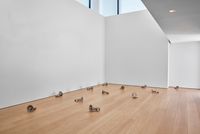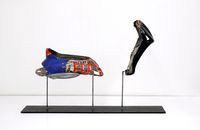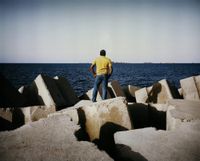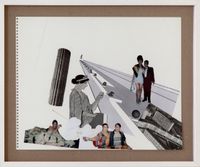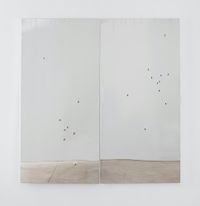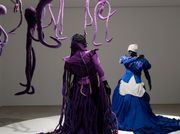Kader Attia spent much of his childhood between Algeria and France and lived in the Democratic Republic of Congo and Venezuela as a young adult. With such a background, a key component of his work is the question of cultural conflict. Approaching his work with a multicultural lens, Kader Attia is known for exploring the legacy of colonialism: the ongoing impact of Western culture and politics on the Middle East and North Africa, as well as the impact within Western countries themselves.
Read MoreWorking across a range of media, materials, scales and symbols, Attia’s many individual series at first appear self-contained. However, he continually returns to the overarching themes of the impact of politics, culture, and cultural displacement, maintaining a sustained critical look at the complexities of modern life.
Using unconventional materials including couscous and plastic bags, Kader Attia explores how non-Western people construct and shape their identities in the face of, in the knowledge of, or in the shadow of Western cultural hegemony. A notable aspect of his practice—one that enables an exploration of this dichotomy—is his focus on architecture: exploring the disparities and similarities between East and West in order to highlight and rectify the social and political divides between the two cultures.
Kader Attia studied at the École Supérieure des Arts Appliqués Duperré, Paris; the Escola Massana, Centre d’Art i Disseny, Barcelona; and the École nationale supérieure des Arts Décoratifs, Paris. His work has been included in major international art exhibitions including the 12th Gwangju Biennale (2018); 12th Shanghai Biennale (2018); 13th Lyon Biennale (2015); dOCUMENTA 13, Kassel (2012); and the 54th Venice Biennale (2011), among others.
In March 2021, Kader Attia was announced as the curator of the 12th Berlin Biennale.
Georgia Messervy | Ocula | 2021
